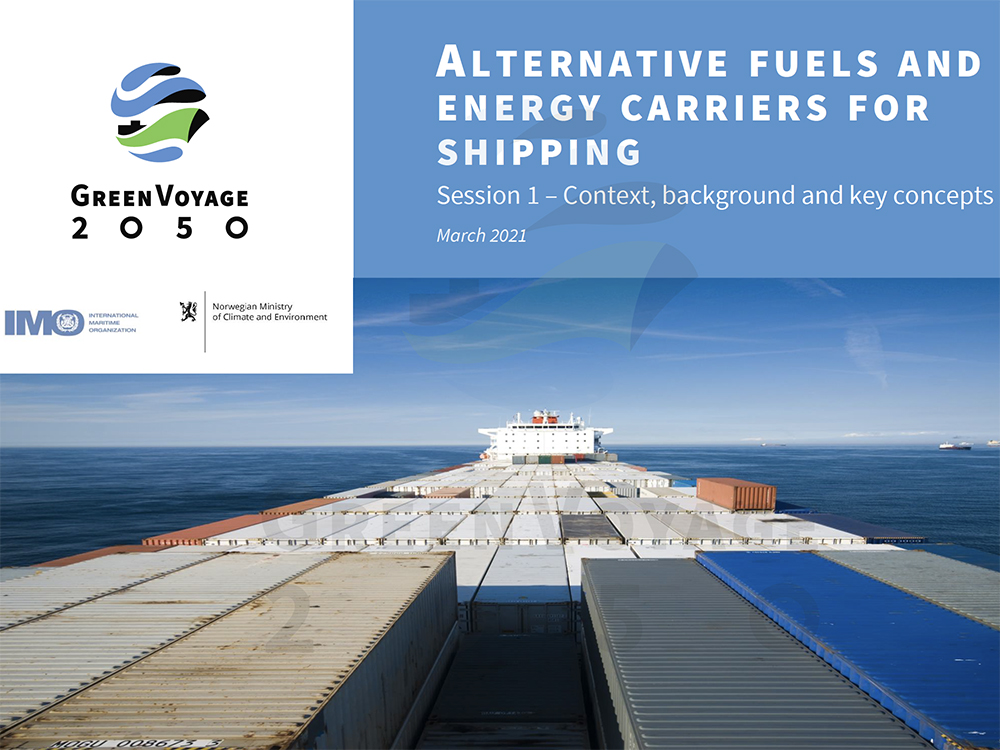The IMO-Norway GreenVoyage2050 Project has launched a free-to-access 'Alternative Fuels and Energy Carriers for Maritime Shipping' workshop package to help users identify key next steps to explore when considering the uptake of new low- and zero-carbon fuels.
The workshop, which can be downloaded via the GreenVoyage2050 website, tackles key concepts related to alternative fuels and provides detailed information on commercially available fuels (such as LNG and LPG), those still in the demonstration phase (methanol, biofuels, battery-power), and some that are under development (hydrogen and ammonia). For each individual fuel, the training considers the following factors:
Feedstocks and energy sources
Production technologies
Onshore requirements
Onboard requirements
Environmental impact
Cost overview
Regulations, standards and guidance
Barriers and risks
The workshop materials include a collection of slides, broken down into four sessions, as well as an example programme and other related practical resources.
"A wide range of alternative fuels for ships are currently under discussion and the maritime fuel landscape keeps continuously evolving. This training package presents a comprehensive resource on alternative fuels and aims to support maritime stakeholders in making informed decisions. Whether government officials looking to spur innovation, ship owners selecting a fuel for ships they order, or fuel suppliers weighing up investments in new bunkering infrastructure, this workshop could be of interest to you," explains Astrid Dispert, Project Technical Manager at IMO's Department for Partnerships and Projects.
The training content has already been used at a series of online workshops which have involved participants from GreenVoyage2050 countries. The workshop was most recently run with participants from China (26-29 April 2021) and brought together over 40 maritime stakeholders."The online workshop we held for Chinese participants highlighted the importance of having joint conversations by stakeholders from various different parts of the industry, which allows a holistic approach to choosing a future fuel," said Dispert.
Organisations across the marine fuels sector are encouraged to download the resources for educational purposes or to run the workshop themselves.
